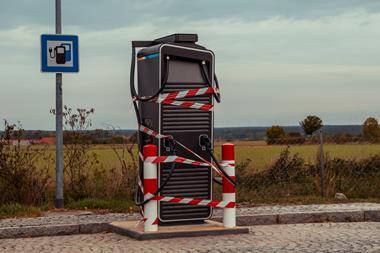The cigarette display ban in Scotland looks set to go ahead after the country’s Supreme Court rejected a legal challenge from Imperial Tobacco.
The proposed ban, which was framed similarly to the one operating in England, was originally due to come into force for larger stores in October 2011, and would also have outlawed cigarette vending machines.
Its implementation was delayed after Imperial Tobacco challenged the ban claiming the Holyrood government had no powers to pass the measure because regulations on sales of goods in Scotland were reserved to Westminster.
The challenge was initially rejected by the Court of Sessions in Edinburgh, but the tobacco company appealed the decision up to Scotland’s highest court, where five judges gave a unanimous decision.
The Scottish government will now be expected to bring forward a timetable for the introduction of the ban. Previously it had planned that, as in England, the ban would be imposed on larger stores first giving smaller stores extra time to adjust to the new measures.
The proposed legislation has already been amended after retailers protested about restrictions on the space allowed for the sales transaction. Initially it was proposed that an area the size of only one cigarette packet could be opened in the gantry, but it was increased to the size of 12 packets, although this is much smaller than the space allowed by the rules in England.
A spokesman for Imperial Tobacco said: “Clearly, we’re disappointed with today’s judgment as we believe our legal argumentation was strong. We will now await the publication of the Scottish display ban regulations and consider our option.”
Scottish Grocers’ Federation chief executive John Drummond commented: “It is the retailers who are the real losers in this case; losers because they will have to find large sums of money in order to cover up the tobacco gantries that are currently in place. Scottish retailers are worse affected than the other countries in the UK due to the draconian measures imposed by the Scottish Government especially in relation to the available space allowed during any transaction.
“The probability of longer transaction times resulting in longer queues and disgruntled consumers may lead them to pursue cheaper purchases on the illicit market, where it may be easier to buy tobacco products which have either been imported illegally or are counterfeit products.”

































No comments yet